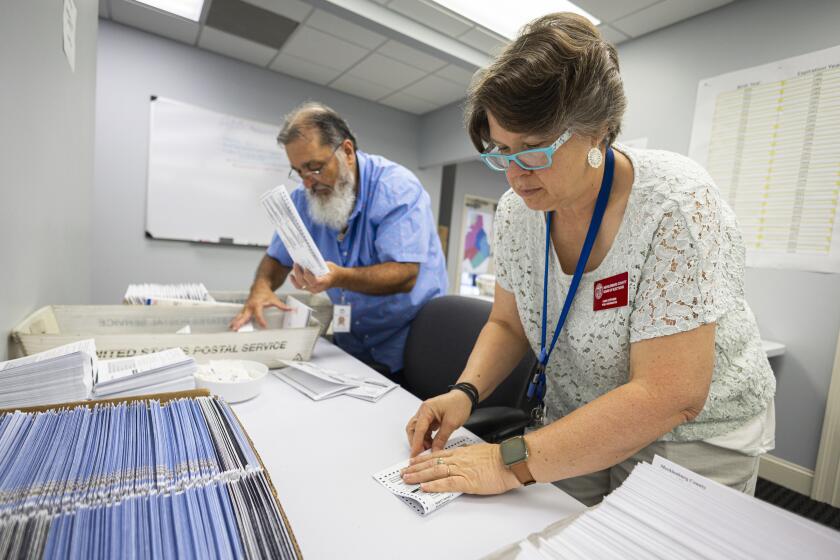Gingrich Urges Clinton to Put End to Legal Privileges
House Speaker Newt Gingrich called on President Clinton and his administration Monday to stop asserting legal privileges to keep Secret Service agents and other witnesses from testifying before a federal grand jury being run by independent counsel Kenneth W. Starr.
“We do not have a divine right of presidents,” the Georgia Republican told the Atlanta Rotary Club. “Obviously, the Secret Service has to testify if it’s about the law.”
Gingrich’s statement put him at odds with former President Bush, who wrote a letter last week supporting the administration’s position that Secret Service agents should not be compelled to testify about what they may have seen or heard. Bush said he was concerned that such forced testimony could destroy the bond of trust that must exist between any president and his security detail.
Starr has complained that assertions of legal privilege by the White House have slowed his 3-month-old investigation into the truthfulness of Clinton’s sworn testimony about his relationship with former White House intern Monica S. Lewinsky and former White House worker Kathleen E. Willey and whether he encouraged others to lie under oath about such matters.
The testimony at issue was given in Paula Corbin Jones’ sexual harassment lawsuit against the president. The civil suit was dismissed April 1 by a federal judge. Jones and her lawyers said last week they will appeal the ruling.
In addition to the privilege claims made by the Justice Department and the Treasury Department, parent agency of the Secret Service, in an effort to prevent agents’ testimony, at least two presidential aides have cited executive privilege in refusing to answer certain questions before the grand jury.
Deputy White House Counsel Bruce R. Lindsey and Clinton political advisor Sidney Blumenthal raised these claims when summoned before grand jurors last month.
Chief U.S. District Judge Norma Holloway Johnson has been studying sealed legal briefs on the privilege issue and has heard closed-door arguments from both Starr and the administration. So far she has not announced a ruling.
Although Bush said that he is “deeply troubled” by the allegations surrounding Clinton, he is the only former president to state that Secret Service agents should be spared from testifying.
Former President Carter, confronted by reporters Monday at the dedication of a new submarine named for him, declined comment on the privilege issue. Gerald R. Ford and Ronald Reagan have not taken a position on the controversy.
Gingrich noted that the Supreme Court ruled in 1974 that President Nixon could not claim executive privilege to withhold secret tape recordings that a special Watergate prosecutor had subpoenaed.
“Richard Nixon lost this argument in court, and he didn’t go anywhere near as far as President Clinton suggested,” Gingrich said.
*
Gingrich continued to speak out on the issue later in the day, saying: “I think any honest American, when the evidence comes in this summer, is going to reach the conclusion that there is a great deal the American people need to know. No one is above the law.”
Some administration sources have argued that consensual sex between a president and an aide, if it occurred, would not be a crime. Under this reasoning, only if agents witnessed presidential conduct that was criminal--the taking of a bribe, for example--would they be obligated to testify about it.
The legal issue has rarely arisen for two reasons: Seldom are presidents drawn into criminal inquiries, and, until the advent of the independent counsel, a president, as the nation’s chief law enforcement officer, had the ultimate power to block a subpoena involving personnel in the White House.
*
Times staff writer Ronald J. Ostrow contributed to this story.
More to Read
Sign up for Essential California
The most important California stories and recommendations in your inbox every morning.
You may occasionally receive promotional content from the Los Angeles Times.










